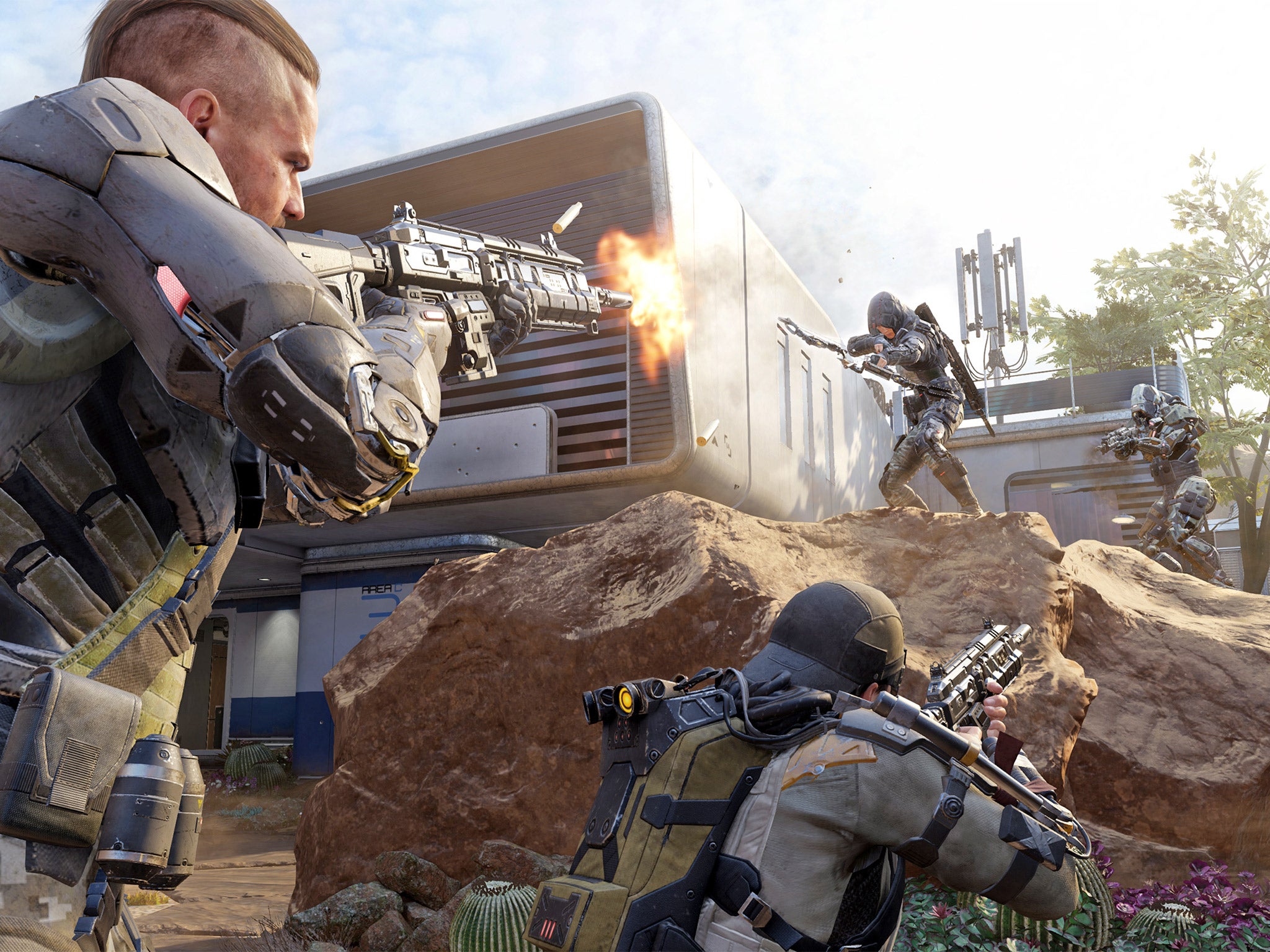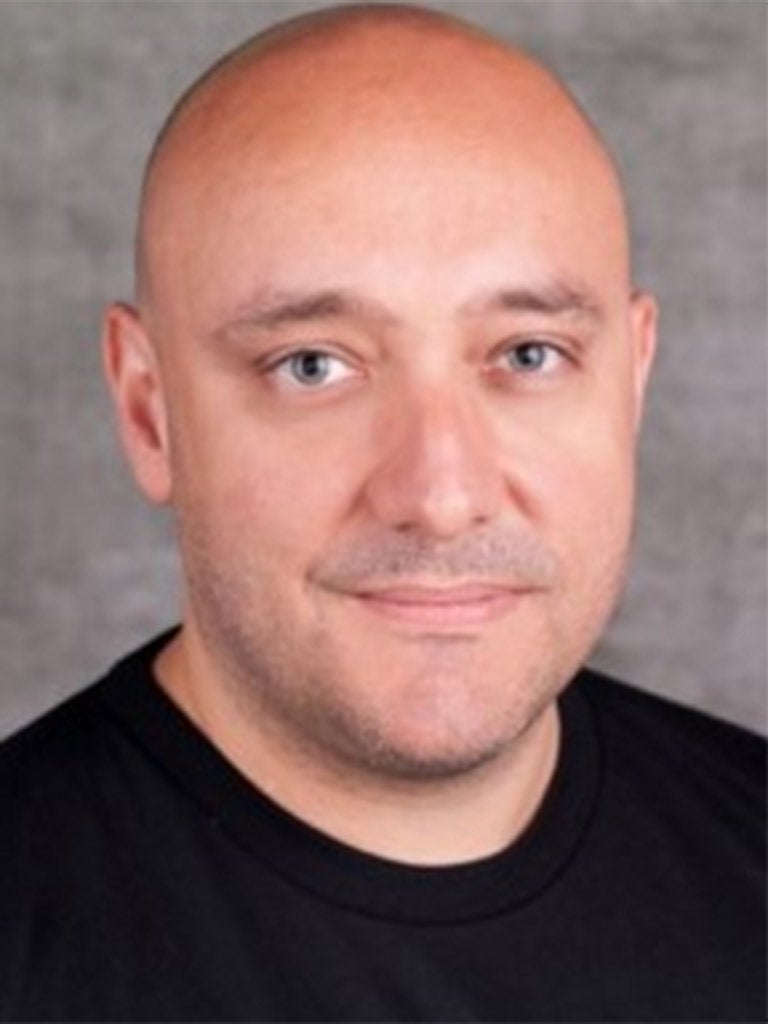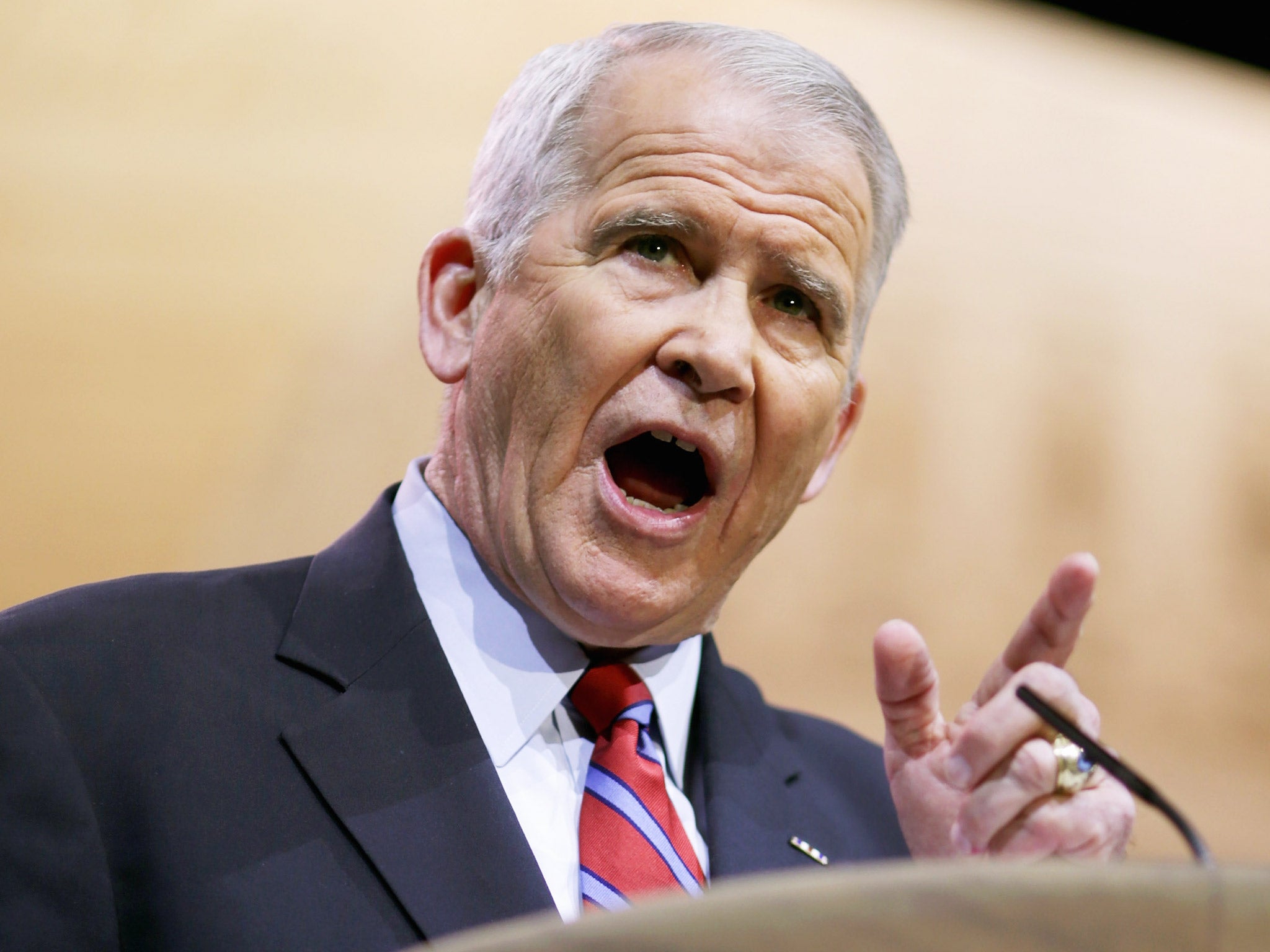Call of Duty designer Dave Anthony is advising America on the threats that could cause the apocalypse
Anthony is well-versed in nightmare scenarios. Mark Piesing finds out how worried we should be

If you want to know how the world might end, you could consult scientists, ask religious leaders, talk to astronomers or search the crazier fringes of the internet. Or you could pick the brains of a man well versed in apocalyptic scenarios played out on a global stage. Dave Anthony, a Liverpool-born writer, director and producer, moved to LA in 2004 to produce Call of Duty for PlayStation and Xbox. As a games designer for one of the most successful franchises of all time, he knew how to press gamers' buttons with all-encompassing depictions of war.
Now, though, the 42-year-old is using his experience on Call of Duty – as well as his first- class degree in computer science, including artificial intelligence and natural language processing – to help the United States prepare for the worst. Anthony works for the Atlantic Council, a Washington-based international- affairs think tank (motto: "Working together to secure our future"). Anthony's role is to identify non-traditional threats to America – which in layman's terms means to imagine the future of the country as a video game for which he has to come up with credible if surprising endings.
"I've no idea how it will go down as there are so many nightmare scenarios," he says. "I have two young boys and their future (or potential lack of it) really does bother me – and that's a great motivator for my work in Washington."
"You can take down a country now without firing a single shot," he says. "The financial system makes decisions in nanoseconds and there are sophisticated AI bots out there that can take advantage of that speed to bring the financial system down before anyone can realise what is happening. If you can't handle 20 crazies who want to fly aeroplanes into a skyscraper, how is the military going to handle AI bots?

"And that's just today," he adds. "Believe me, I have seen some of the stuff that's being worked on now and that will be here tomorrow. It is truly terrifying."
His professionally pessimistic role started with an email inviting him to be part of a conference in Washington where General Dempsey, chairman of the Joint Chiefs of Staff, was giving a speech. They had been impressed by the authenticity of the political storyline of Call of Duty: Black Ops 2, a game which broke all previous sales records by grossing $1bn in just 15 days. At first, Anthony thought that the invitation was a joke by the guys from the game's development team to wind him up. Having said that, he had been quite pleased by how the story had turned out on the political side, as he had put in a lot of effort to get it right. So he decided to wait to see if the tickets would arrive. And they did.
He had gone to so much trouble to get the political storyline of Blacks Ops right because it was the first time the Call of Duty franchise had moved away from the Second World War or Cold War themes of the first games, whose authenticity came for free because of their historical origins. For a world set 15 years in the future, the sense of reality had to be carefully constructed. And to create this in the storyline he turned to a who's who of special-ops warfare experts to advise him in person. These included Colonel Oliver North, who during the Reagan years illegally sold guns to Iran in order to fund a right-wing insurrection in Nicaragua; and one of the men from SEAL Team Six, which killed Osama bin Laden. Then, Anthony combined their intelligence with boots-on-the-ground experience and input from out-of-the-box thinkers such as David Goyer, who worked on the Batman movies, and cyber security futurist Peter Singer.
And it is this understanding of the creative process, he thinks, that is the key to his value to the suits and generals inside the Washington Beltway, who, he believes, are more used to rigid bureaucracy and covering their backs than creative thinking.
"It was this that fascinated them – how the creative process works and how it could lead to a very different kind of thinking in Washington, which is sorely needed as the world is threatening to spin out of control.
"In a creative industry such as video games, we are not afraid of throwing our ideas out there – and often it is the stupid idea that actually provokes thought and turns into something interesting." This is in direct contrast to how the military works, he believes.
"When something very bad happens, such as 9/11, they know they have to react to it, they want to react to it and they do, and because this is a very reactionary process rather than a proactive one, the decisions that are made tend not to be good as they don't have the time to think about it.

"Instead, my role is to get the government to see things such as AI as a threat and respond now; but being proactive is difficult, it costs money when money is short."
However, he "respectfully and politely" disagrees with the point that some events are impossible to predict. Again, he cites 9/11: "Think about it. There was a television show called The Lone Gunmen – an X-Files spin-off – and in the pilot episode, aired six months before 9/11, government conspirators posing as terrorists attempt to take control of a commercial aircraft and fly it into the World Trade Center.
"So the problem is not that things aren't being predicted, but that no one is looking at this vast amount of data to try and come up with more proactive solutions to what may turn out to be the same general problems. Instead of millions of different problems, you can say that the root of this problem and the root of that problem are actually the same thing. And you can boil these down to specific things that you can target before something happens.
"I know you can do this because this is how Call of Duty worked in order to stay on top. And the USA has to do the same."
Join our commenting forum
Join thought-provoking conversations, follow other Independent readers and see their replies
Comments
Bookmark popover
Removed from bookmarks